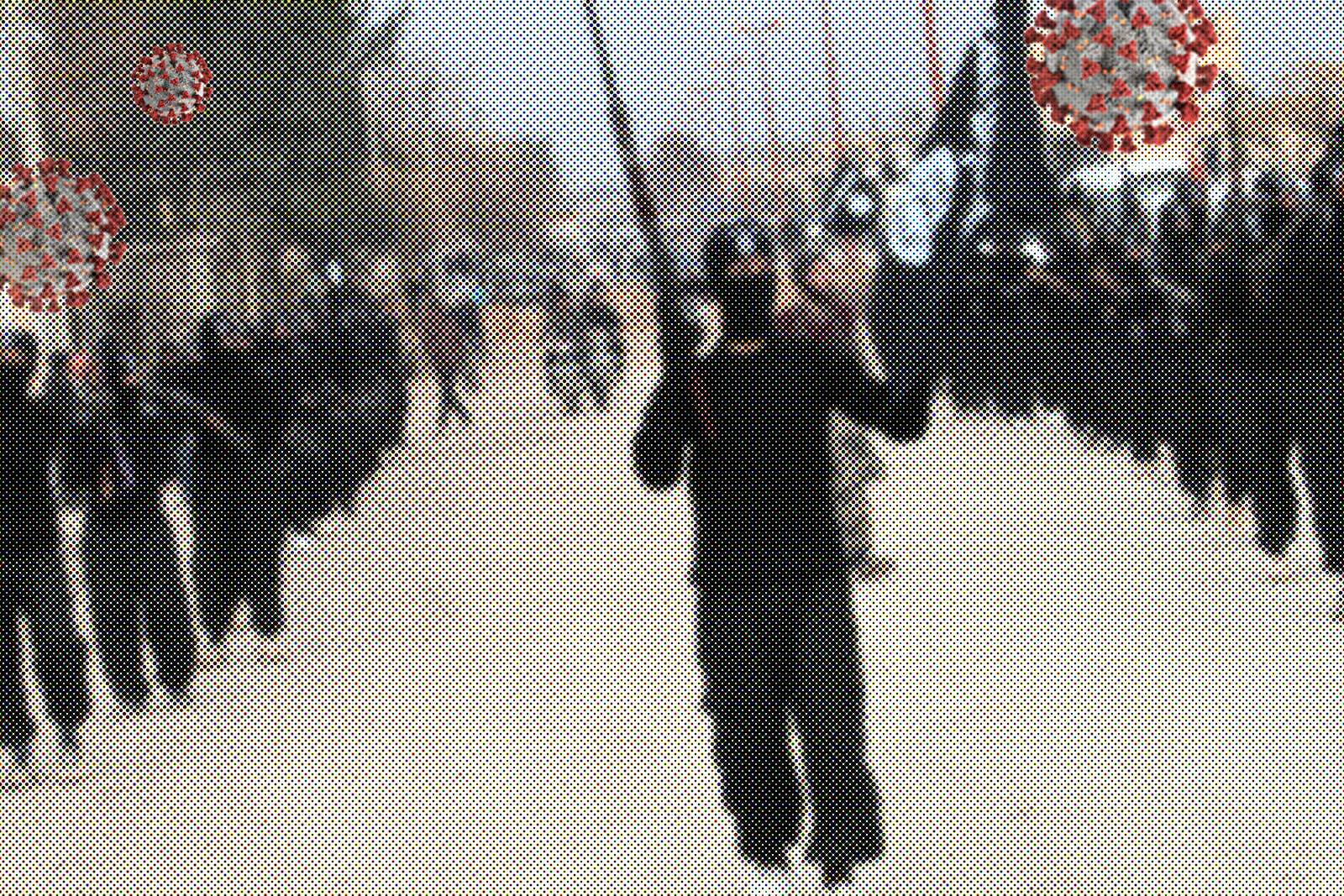
As States Collapse, Terror Resurfaces
Violence rarely takes a backseat within the political agendas of terrorist organizations. Terror does not have a timeline, nor does it have consistent global conditions or tangible thresholds to meet to ensure success. Terror is spewed by the outlook of its executors, and rationalization of its orchestrators.
States have been preoccupied with the mitigation of COVID-19, leading to the absence of “terrorism” and associated terminology in mainstream media and government speeches. However, the lack of attention does not equate to a lack of activity. Jihadist terrorist groups remain alive and well, plotting attacks on decentralizing and weakening states.
In the U.S. and other western nations, successful attacks require prolonged and skillful planning in order to maneuver around the legal obstacles put forth by robust counter-insurgency forces. However, states who have already proven prone to terror by virtue of weaker intelligence or existent political chaos, have not replaced terrorism with the COVID-19 struggle. The states in the Middle East and North Africa have just obtained another factor contributing to an anarchic political field.
Upon the onset of national lockdowns occurring around the world, many states acknowledged record-breakingly low rates of domestic terrorism. Israel, the victim of a high volume of attacks from its Palestinian neighbors, most recently Palestinian Islamic Jihad’s launching of 60 rockets in February 2020, has seen unparalleled tranquility on its usually volatile borders. In times of medical catastrophe, not constrained by religion, ethnicity, or partisan politics, it appears as though the political and military entities have united around a common enemy. The cooperation between the Palestinian Authority, Hamas, and the Israeli government — one of the Middle East’s most defining relationships in terms of regional conflict — to combat the invisible enemy, symbolizes terrorism’s transition to the back burner amidst global uncertainty. However, this brief lack of violent terror is an anomaly as groups like ISIS continue to attack regional states incumbent of its fundamentalist mission.
Over the past few weeks, jihadist movements have claimed that “the virus was an illustration of God’s power on earth” and that the “prospect of dying from the virus has been presented as martyrdom, an act of virtue.” Al Naba, ISIS’s weekly publication, declared the spike in cases in Iran “a warning to Shiite polytheists.” In Europe, ISIS explicitly suggested that “COVID-19 constituted retribution for crusader nations.” These implicit calls to action echo to branches of the organization across the Muslim world. The leader of Boko Haram, an ISIS affiliate, remarked that the virus was punishment for those disobeying Islam, offering piety as a solution. An ISIS supporter based in Indonesia cast the virus as punishment for the death of al-Baghdadi, subsequently calling for attacks on the United States. Given these circumstances and mindsets, it would prove surprising if jihadist groups avoided leveraging on depleting social and political structures in fear of compromising personal health.
To make matters increasingly dire for Middle East states, the security blanket of U.S. troop presence in the face of malign actors has decreased as worries on the home front materialize. Many members of the American military operating within the counter-ISIS operations in Iraq have returned to the U.S., transferring authority, control, and responsibility to the Iraqi Security Forces (ISF). The ISF failed to demonstrate military control and stability in 2014 when ISIS expanded its territory into Mosul and Tikrit. Iraq now faces a similar reality. The ISF is now the sole state-funded military operator; an operator that can easily lose territory to ISIS once again if their coordination and capabilities fail to improve.
Iraq remains notably politically unstable. Baghdad’s recent protests in 2019 surrounded the seemingly everlasting domestic issues of corruption, high unemployment, and collapsing public services. Although Prime Minister Adil Abdul-Mahdi resigned, the popular movement continued to seek the destruction of the political establishment.
With the Iraqi government focusing its attention on the current health crisis and attempting to navigate its unintended economic consequences, not to mention Iraq is perpetually battling economic insecurity, ISIS is given new room to breathe. ISIS continues to exploit the state’s security chasms, conducting 34 attacks in Iraq during one week in April alone.
Iraq is not unique in the context of a potential resurgence of Islamist extremism amidst the coronavirus outbreak. ISIS is a multinational organization, fostering their message and agenda in affiliated groups and branches across the globe. The Asian countries of the Philippines and Indonesia have seen not only an outbreak of the health crisis but also an outbreak in public calls for terrorist-affiliated action.
The current global circumstances and the significant shift of focus on behalf of governments enable ISIS to demonstrate its power without costly developments in its operational capabilities. Yet, in order to quell the resurgence of the group, weakened states will have to strike a balance between mitigating two enemies: The medical virus, and human evil.
